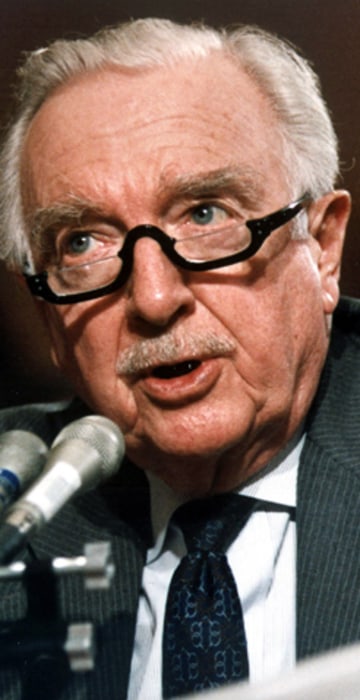
World
Final Farewell 2009
From Walter Cronkite (above) to Sen. Ted Kennedy, remembering newsmakers and intriguing personalities who died in the past year.
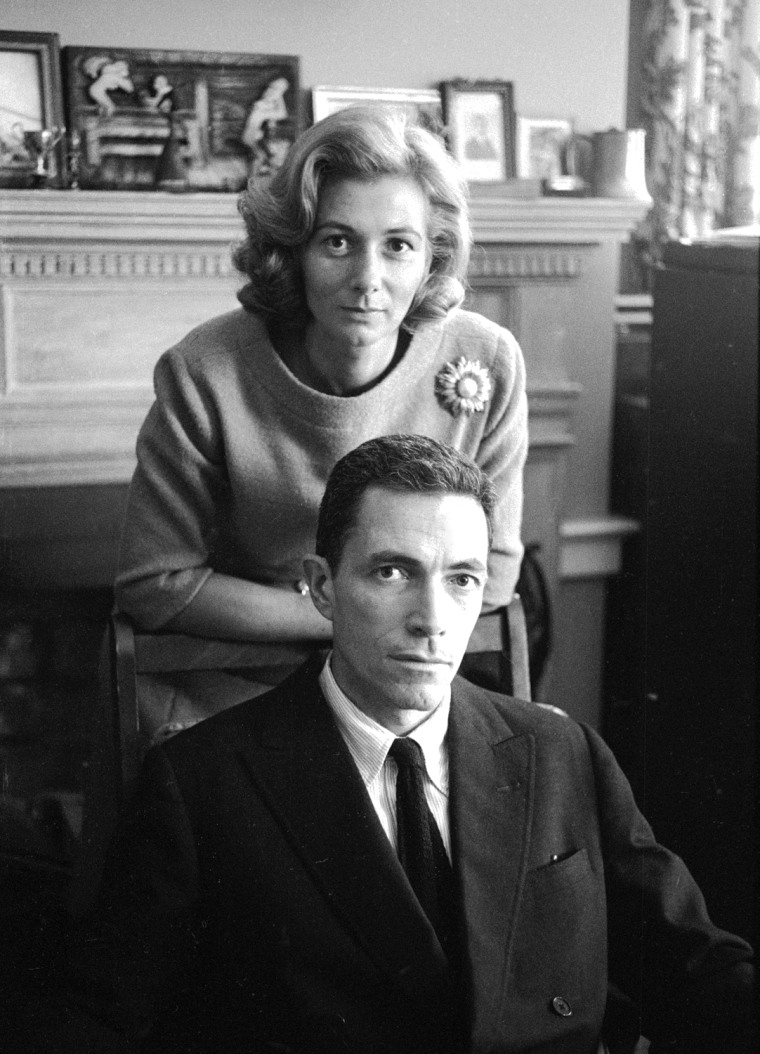
Claiborne Pell
Pell, a quirky blueblood who represented blue-collar Rhode Island in the U.S. Senate for 36 years, died Jan. 1. He was 90 and had been suffering from Parkinson’s disease. Pell was best known nationally for being the force behind a grant program that has helped tens of millions of Americans attend college. Pell, a Democrat, was first elected to the Senate in 1960. He sponsored legislation creating the Basic Educational Opportunity Grant program, which passed in 1972 and provided direct aid to college students. The awards were renamed Pell Grants in 1980. By the time Pell retired in 1997, they had aided more than 54 million low- and middle-income Americans. In this 1963 photo, he is seen with his wife, Nuala.
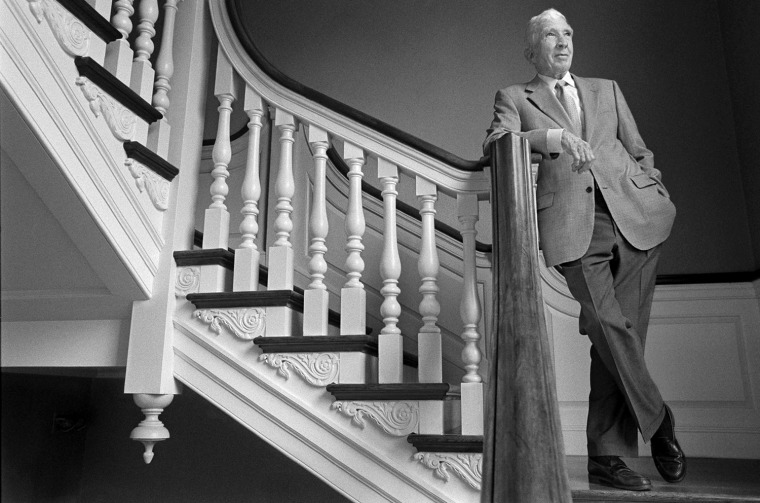
John Updike
Dependable as time itself, Updike, who died Jan. 27 at age 76, released more than 60 books in a career that started in the 1950s, winning virtually every literary prize, including two Pulitzers, for "Rabbit Is Rich" and "Rabbit at Rest," and two National Book Awards. He had lung cancer. Updike's literary home was the American suburb, the great new territory of mid-century fiction, white-fenced compound of sex and anxiety. Born in Reading, Pa., he graduated from Harvard University in 1954 and was soon offered a job at The New Yorker, which later published many of his reviews and short stories. This photo shows him in 2006.
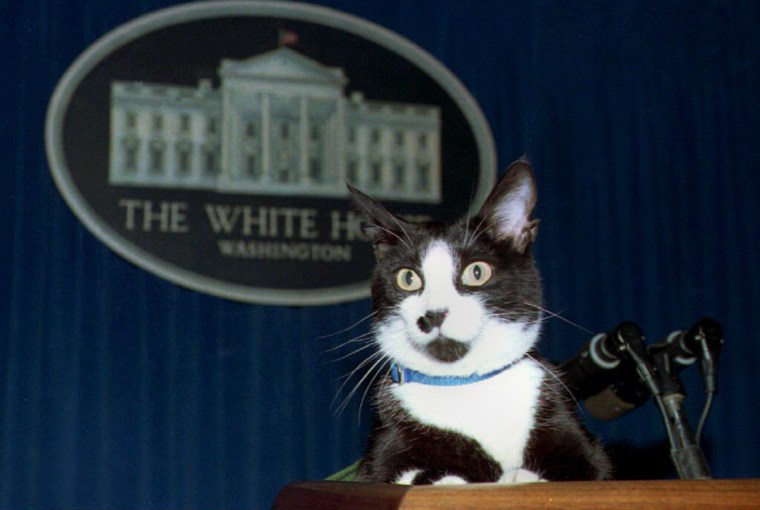
Socks the cat
Chelsea Clinton's pet, which died Feb. 20 at about 20 (human years) first appeared in the news in November 1992 after then-Gov. Bill Clinton won the presidency and the family was the still in the governor's mansion in Little Rock, Ark. Socks became an early symbol of privacy-vs.-media in the Clinton era when photographers got a little aggressive as he took a stroll outside. Life changed for Socks in the White House, when his easy access to the out-of-doors was necessarily curtailed. After the Clintons left the White House in early 2001, Socks lived with Bill Clinton's secretary, Betty Currie, in Hollywood, Md., and was euthanized after suffering cancer of the jaw. He is pictured in 1994.
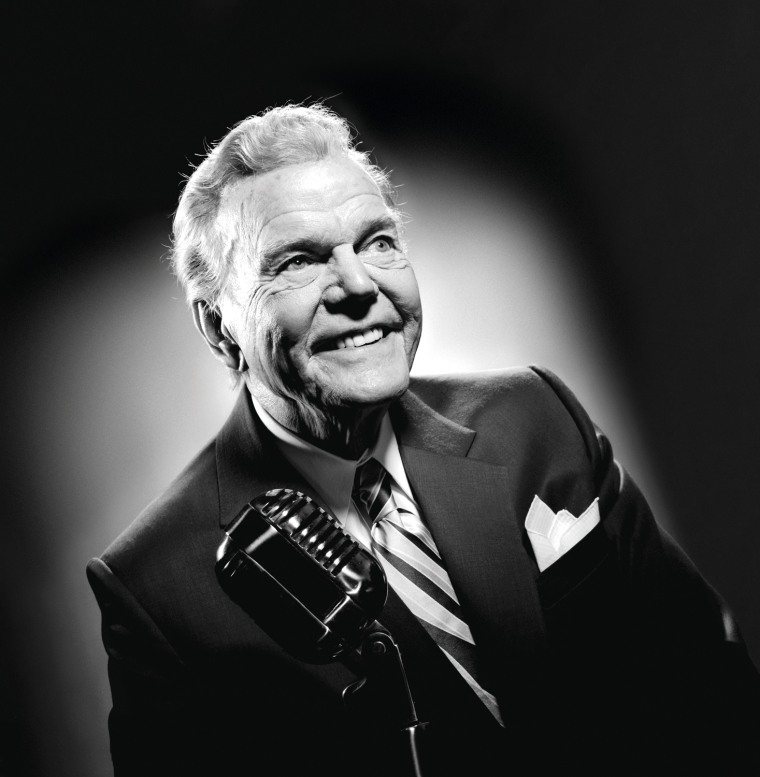
Paul Harvey
Known for his resonant voice and trademark delivery of "The Rest of the Story," Harvey, who died Feb. 28 at age 90, was heard nationally from 1951, when he began his "News and Comment" for ABC Radio. He became a heartland icon, delivering news and commentary with a distinctive Midwestern flavor from a downtown Chicago office. Rising at 3:30 each morning, he ate a bowl of oatmeal, then combed the news wires and spoke with editors across the country in search of succinct tales of American life. At the peak of his career, Harvey reached more than 24 million listeners and charged $30,000 to give a speech. His syndicated column was carried by 300 newspapers. This photo is from 2002.
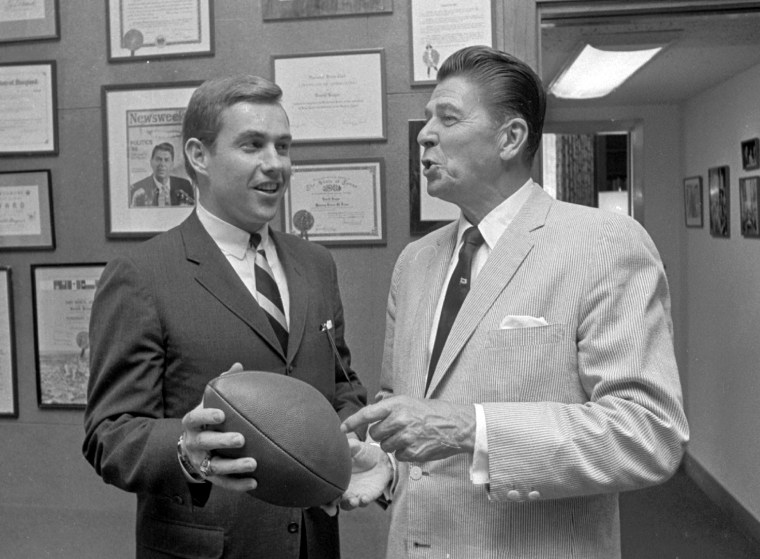
Jack Kemp
Kemp, who died May 2 at 73, was a former pro quarterback who turned fame on the gridiron into a career in national politics. He had suffered from cancer. Kemp was a 17th-round 1957 NFL draft pick who in 1962 landed him with the Buffalo Bills, whom he led to the 1964 and 1965 AFL championships. When he retired from football in 1969, Kemp had enough support in blue-collar Buffalo and its suburbs to win an open congressional seat. He spent nine terms in Congress, then left the House for an unsuccessful bid for the Republican nomination for president in 1988. In 1996, he made it onto the national GOP ticket as Bob Dole's running mate against President Bill Clinton. In this July 3,1967 picture, he talks with then-California Gov. Ronald Reagan.
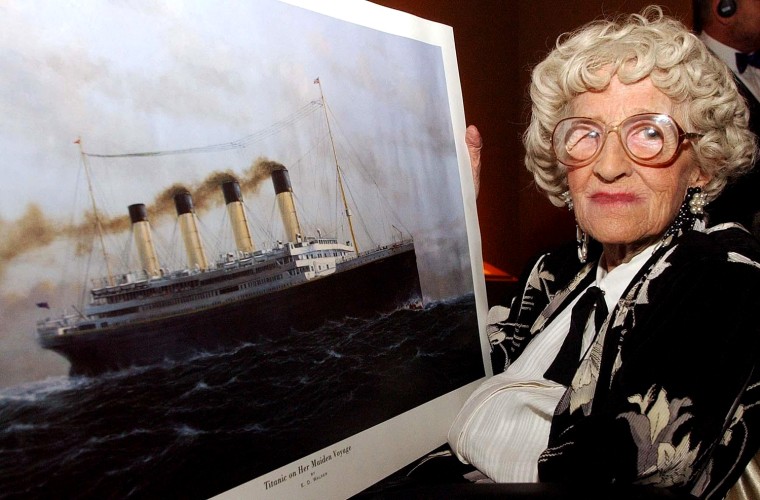
Millvina Dean
Dean, who died May 31 at 97, was the youngest passenger on RMS Titanic -- just 9 weeks old when she was wrapped in a sack and lowered from the sinking ship into a lifeboat bobbing on the frigid North Atlantic -- and the disaster’s last survivor. Her 2-year-old brother, Bertram, and her mother, Georgette, also survived. Her father, who had sold his pub and hoped to open a tobacconist’s shop in Kansas City, was among the 1,517 who died. Dean did not know she had been aboard the Titanic until she was 8 years old, when her mother, about to remarry, told her about her father's death. Dean spent most of her life in Southampton, Titanic's home port. She never married and worked as a secretary, retiring in 1972 from an engineering firm. This photo shows her in 2003.
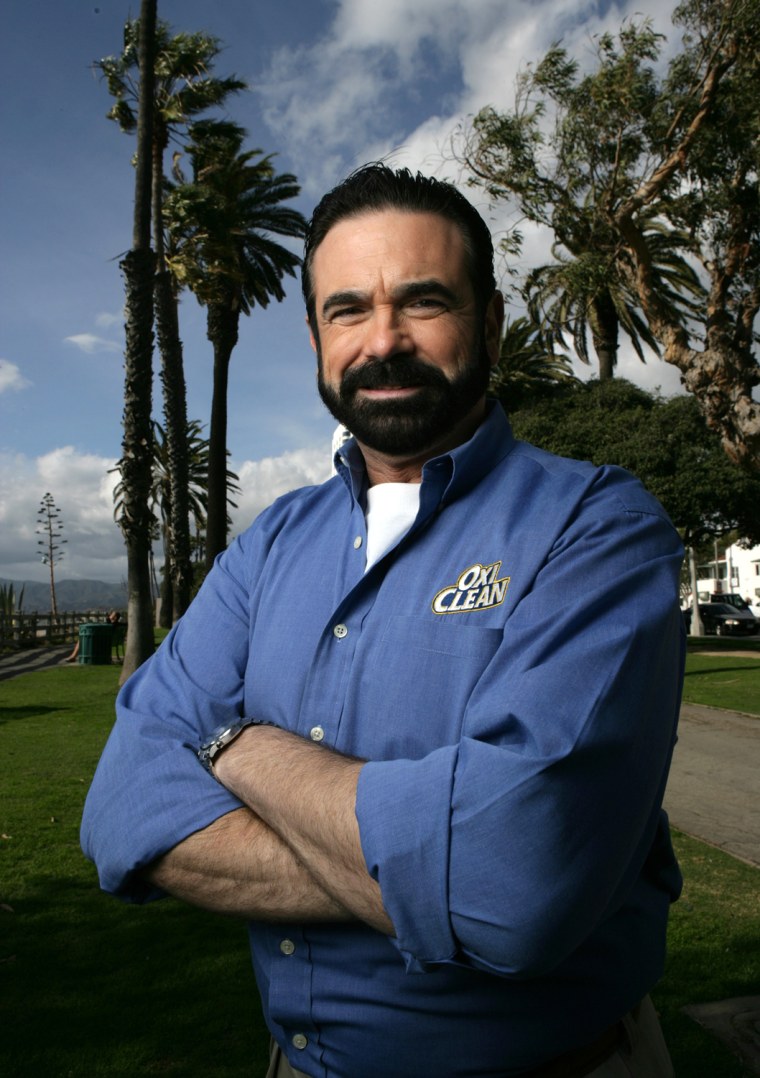
Billy Mays
Television viewers knew Mays, who died June 28 from a heart attack at age 50, as the OxiClean guy: the bearded, boisterous pitchman on commercials airing hundreds of times a week nationwide. "Hi. Billy Mays here," he would begin, before showing off his latest cleaning product or gadget. A native of suburban Pittsburgh, Mays developed his style demonstrating knives, mops and other "As Seen on TV" gadgets on Atlantic City's boardwalk. Eventually, Mays was recruited to demonstrate the line of cleaning products on the Shopping Network. Commercials and informercials followed, anchored by the high-energy Mays as he tossed out kitschy phrases like, "Long live your laundry!" This photo shows him in February 2009.
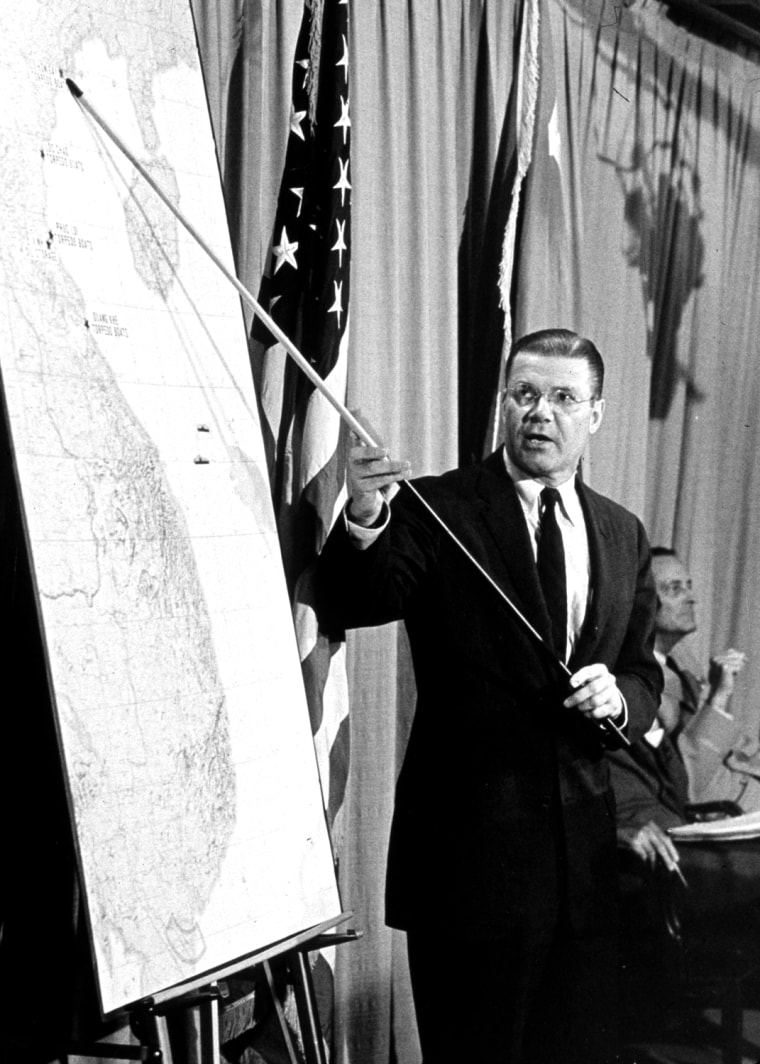
Robert McNamara
McNamara, who died July 6 at 93, was the brainy Pentagon chief who directed the escalation of the Vietnam War despite private doubts that the conflict was winnable or worth fighting. "We were terribly wrong," McNamara told The Associated Press in 1995. Lawyerly and a student of statistical analysis, McNamara was recruited to run the Pentagon by President Kennedy in 1961 from the presidency of the Ford Motor Co. He stayed in the defense post for seven years, longer than anyone else since the job's creation in 1947. He left on the verge of a nervous breakdown and became president of the World Bank. This photo shows him in 1965.
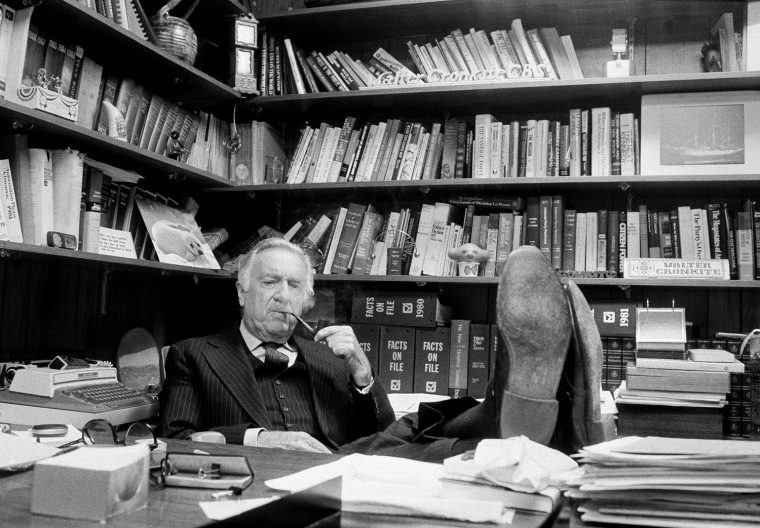
Walter Cronkite
Missouri-born Cronkite, who died July 17 at 92, was the avuncular face of TV journalism who became the "most trusted man in America." The anchorman of the "CBS Evening News" from 1962 to 1981, Cronkite famously read the bulletins coming from Dallas when Kennedy was shot Nov. 22, 1963, interrupting a live CBS broadcast of a soap opera. Off camera, Cronkite’s stamina and admittedly demanding ways brought him the nickname "Old Ironpants." But to viewers, he was "Uncle Walter." When he summed up the news each evening by stating, "And THAT's the way it is," millions agreed. This photo shows him in 1981.
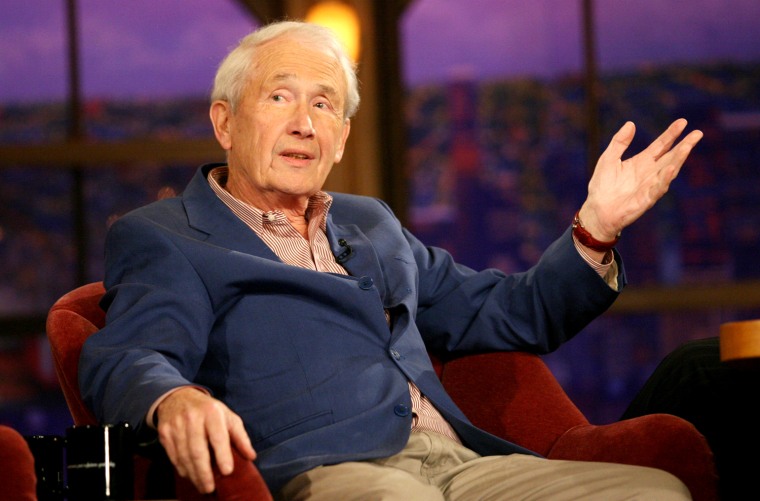
Frank McCourt
Until his mid-60s, McCourt, who died July 19 at 78 from a combination of meningitis and melanoma, was essentially a New York character -- teaching by day and at night singing songs and telling stories with his younger brother Malachy at the White Horse Tavern and other literary hangouts. But there was always a book or two being formed in his mind, and the world would learn his name, and story, in 1996, after a friend helped him get an agent and his then-unfinished manuscript was quickly signed by Scribner. "Angela's Ashes" has been published in 25 languages and 30 countries. This photo shows him in 2007.

Corazon Aquino
Aquino, who died Aug. 1 at age 76 from colon cancer, swept away a dictator with a "people power" revolt and sustained democracy in the Philippines by fighting off seven coup attempts in six years. The uprising she led in 1986 ended the repressive 20-year regime of Ferdinand Marcos. Aquino rose to power after the 1983 assassination of her husband, opposition leader Benigno "Ninoy" Aquino Jr., though she struggled in office to meet high public expectations. Still, the bespectacled, smiling woman in her trademark yellow dress remained beloved in the Philippines, where she was affectionately referred to as "Tita (Auntie) Cory." This photo shows her in 2008.
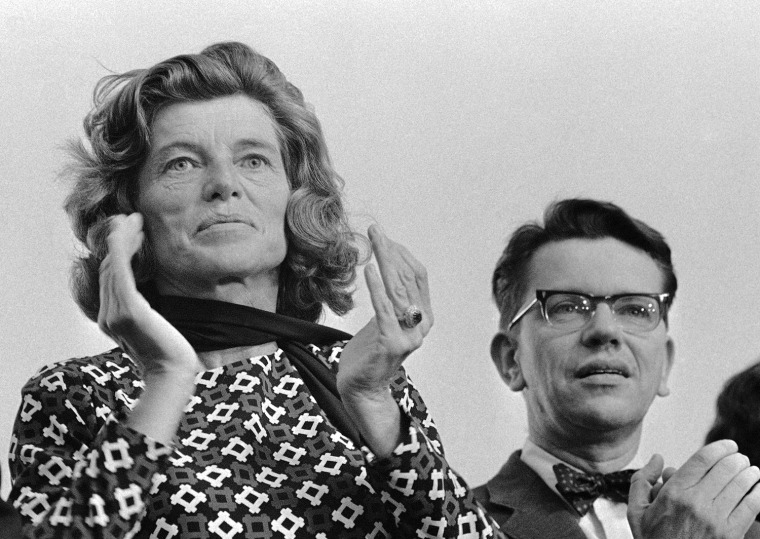
Eunice Kennedy Shriver
A sister of John, Robert and Ted Kennedy, Shriver, who died Aug. 11 at 88 after a series of strokes, helped bring about a fundamental change in thinking about mentally disabled people when she founded the Special Olympics. Realizing they were far more capable of playing sports than the experts said, Shriver in 1968 started what would become the world's largest athletic competition for the mentally disabled. Shriver was the wife of 1972 vice presidential candidate R. Sargent Shriver and the mother of former NBC newswoman Maria Shriver. She is seen here at the first Special Olympics in 1968.
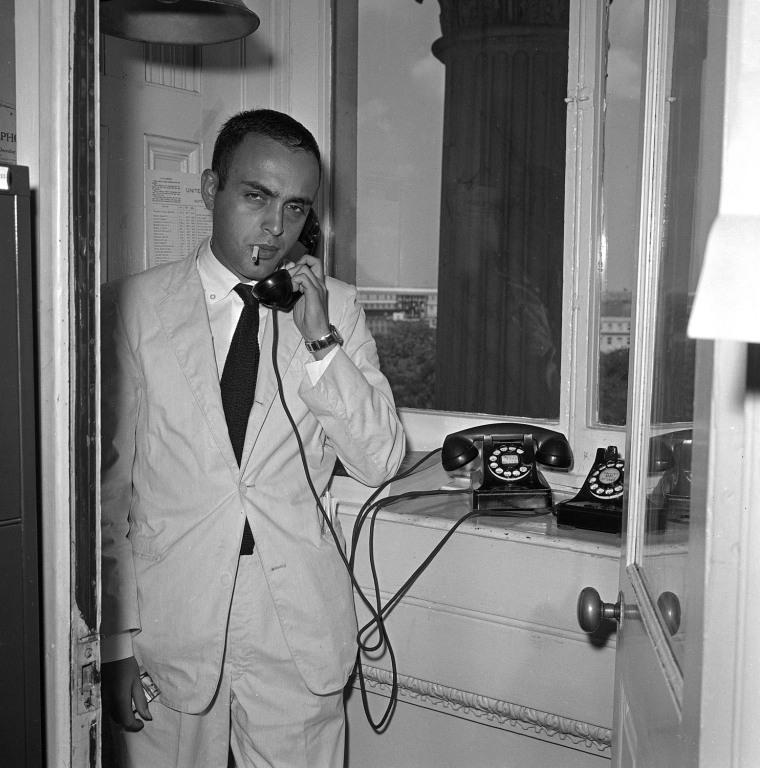
Robert Novak
Novak, who died Aug. 18 at 78 of a brain tumor, is perhaps best known as a co-host of several of CNN's political talk shows, including “Crossfire,” where he jousted with liberal guests from 1980 to 2005. Novak had been a syndicated conservative political columnist for the Chicago Sun-Times for decades. In recent years, Novak ended up as part of a big Washington story, becoming a central figure in the Valerie Plame CIA leak case. Novak was the first to publish the name of the CIA employee, and he came under withering criticism from many for that column, which Novak said began "a long and difficult episode" in his career. He is seen here in 1958.
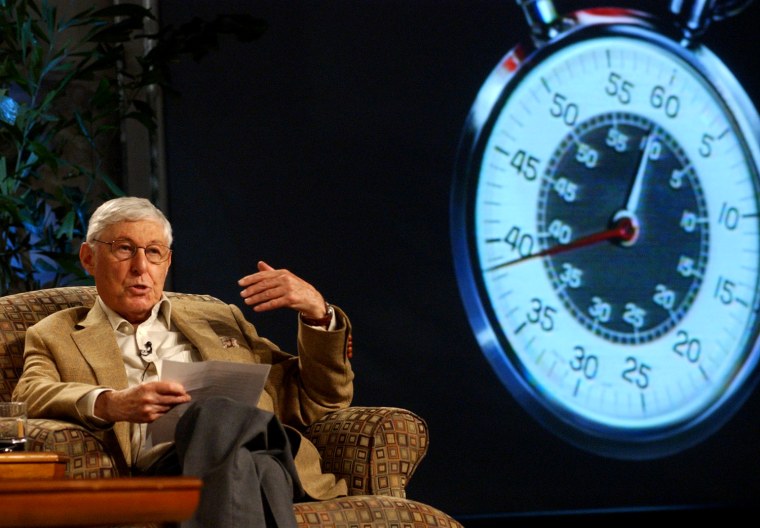
Don Hewitt
Hewitt, who died Aug. 19 at 86 from pancreatic cancer, was a TV news pioneer who created "60 Minutes" and produced the popular CBS newsmagazine for 36 years. Hewitt joined CBS News in television's infancy in 1948 and produced the first televised presidential debate in 1960. In the late 1960s, CBS agreed to try his idea of a one-hour broadcast that mixed hard news and feature stories. Hard-driven reporter Mike Wallace, Hewitt's first hire, became the journalist those in power did not want on their doorsteps. The Sunday evening fixture was television's top-rated show four times, most recently in 1992-93. He is seen here in 2004.

Ted Kennedy
The greatest heights eluded Ted Kennedy. No presidency. No universal health care in his lifetime. Instead, Kennedy, who died Aug. 25 at 77 after a year-long battle with brain cancer, left his distinct imprint on some of the Senate's most important works over nearly half a century. Kennedy was first elected to the Senate in 1962, and he served longer than all but two senators in history. His hopes of reaching the White House were damaged early in his career by the Chappaquiddick scandal. "I think that once he realized he was never going to be president … he really worked at becoming the best senator he possibly could," said Sen. Patrick Leahy, D-Vt. "And he did."
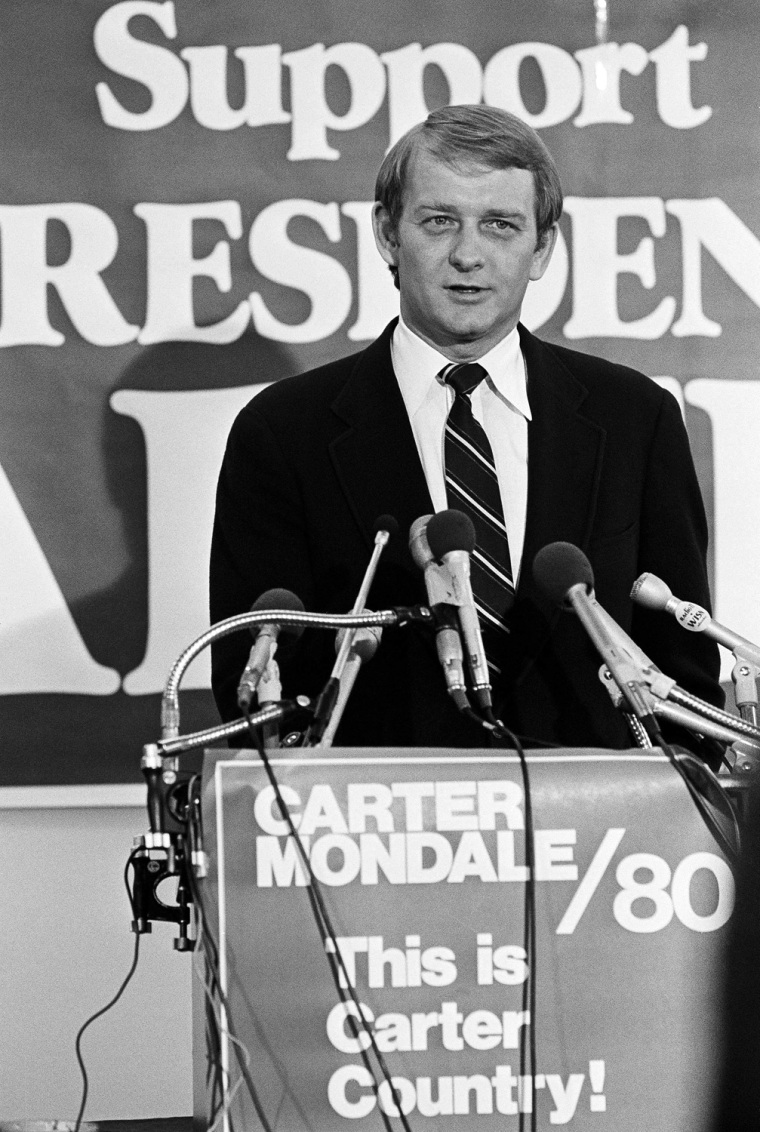
Jody Powell
Powell, who died Sept. 14 at 65 from a heart attack, joined Jimmy Carter's gubernatorial campaign as a driver and all-around handyman and stayed with him through his presidency, serving as chief White House spokesman from 1977 to 1981. Known for his deep Southern drawl, Powell was among Carter's closest confidants. At one point during his presidency, Carter said, "Jody Powell knows me better than anyone else except my wife." After leaving the White House, Powell remained in Washington, eventually founding the Powell Tate public relations firm with Sheila Tate, former press secretary to first lady Nancy Reagan. He is shown here in 1980.

Irving Kristol
Kristol, who died Sept. 18 at 89 from lung cancer, was a writer, editor and publisher known as the godfather of neoconservatism. Kristol, born and raising in Brooklyn, N.Y., became a Trotskyist in the 1930s but soon soured on socialism, broke from liberalism after the rise of the New Left in the 1960s, and in the 1970s committed the unthinkable – supporting the Republican Party. "The influence of Irving Kristol's ideas has been one of the most important factors in reshaping the American climate of opinion over the past 40 years," said fellow neoconservative Norman Podhoretz. He is seen here in 1981.
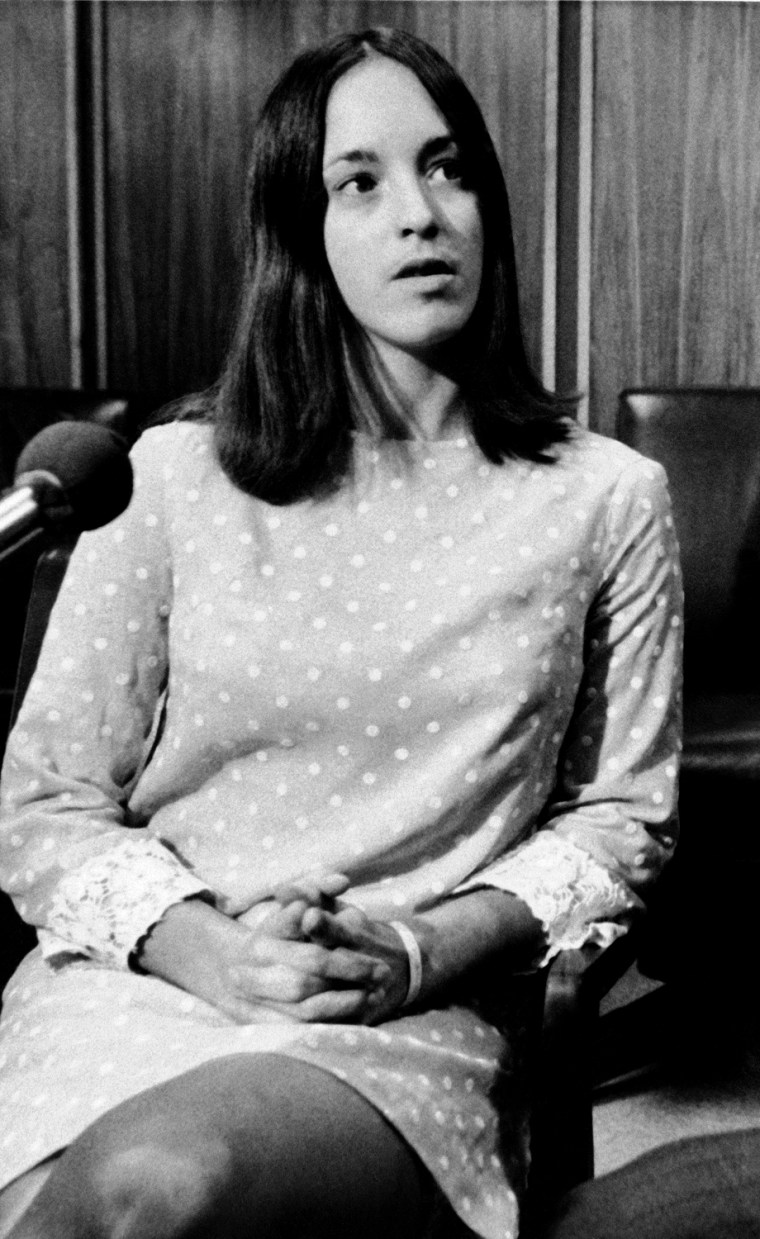
Susan Atkins
Atkins, who died Sept. 24 at 61, was a member of the Charles Manson "family" who admitted ruthlessly stabbing pregnant actress Sharon Tate in the cult's August 1969 murder spree. During a sensational 10-month trial, Atkins, Manson and co-defendants Patricia Krenwinkel and Leslie Van Houten maintained their innocence. But once they were convicted, the "Manson girls" confessed in graphic detail. "I was stoned, man, stoned on acid," Atkins testified. Atkins was sentenced to death, but her sentence was reduced to life in prison when capital punishment was briefly outlawed by the U.S. Supreme Court in the 1970s. She is shown here in 1969.
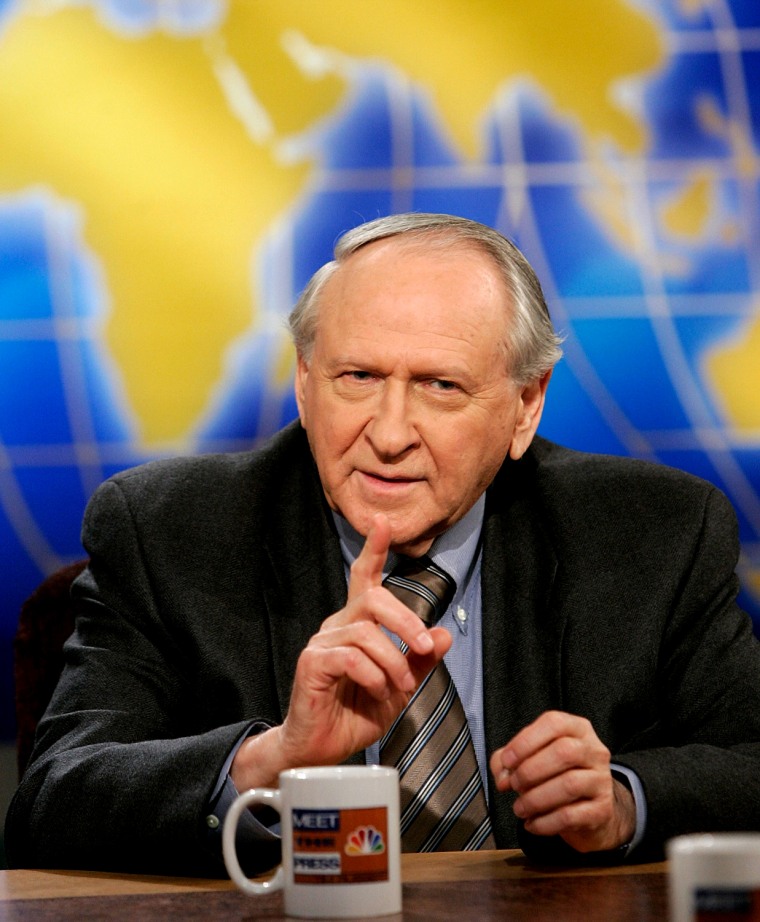
William Safire
Safire, who succumbed to pancreatic cancer on Sept. 27 at 79, was a conservative columnist and expert on the English language. The Pulitzer Prize winner spent more than 30 years writing on the op-ed page of The New York Times and in his "On Language" column traced the origins of words and everyday phrases such as "straw man" and "the proof is in the pudding." As a speechwriter in the Nixon White House, Safire penned Vice President Spiro Agnew's famous phrase "nattering nabobs of negativism," a tongue-in-cheek alliteration that Safire claimed was directed not at the press but at Vietnam defeatists. He is shown here in 2005.
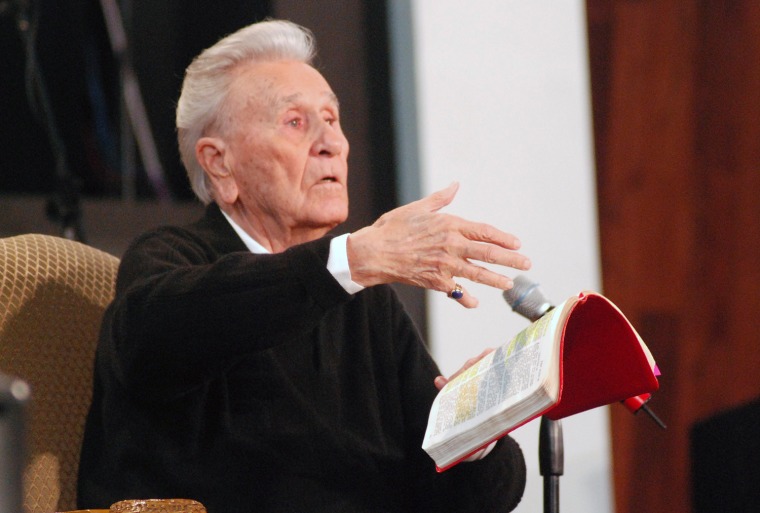
Oral Roberts
Roberts, a pioneer in televangelism who founded a multimillion-dollar ministry and a university that bears his name, died Dec. 15. He was 91. Roberts, whose broadcasts of his spirit-filled revivals were a new frontier for religion when he started in the 1950s, was a forerunner of the controversial "prosperity gospel" that has come to dominate televangelism. His ministry hit upon rocky times in the 1980s. There was controversy over his City of Faith medical center, a $250 million investment that eventually folded, and Roberts' widely ridiculed proclamation that God would "call me home" if he failed to meet a fundraising goal of $8 million.

Roy Disney
Disney, the nephew of Walt Disney whose powerful behind-the-scenes influence on The Walt Disney Co. led to the 1995 departure of former chief Michael Eisner, died on Dec. 16. He was 79 and had been suffering from stomach cancer. Disney practically grew up with the company; while Walt was the company's creative genius, his brother was the one in charge of the company's finances. Starting in the 1950s, the younger Roy Disney worked for years in the family business as an editor, screenwriter and producer. Two short films he worked on were nominated for Academy Awards. In this photo, he is shown in Japan in 2001.